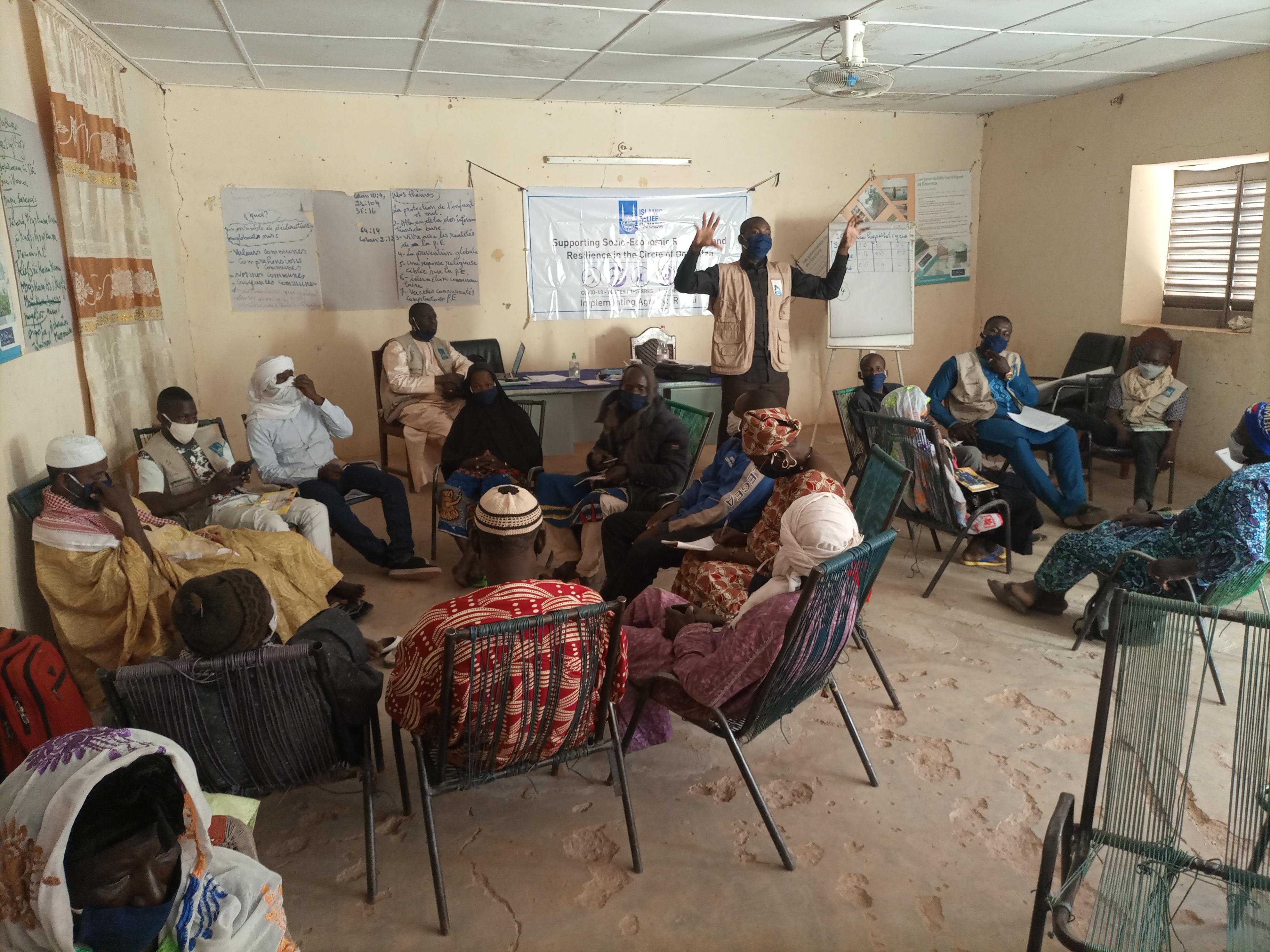Introduction to Mali
Mali is one of the biggest countries in Africa and home to the ancient city of Timbuktu, once a key trading post and centre of Islamic culture. Its capital city lies on the banks of the Niger River and hosts vibrant local markets and live music.
Despite being rich in minerals with the potential for economic growth, Mali remains one of the world’s poorest countries with 70% of the population living on less than $1 a day and an estimated 18 million people dependent on agriculture for survival.
With extreme weather events increasing in frequency and intensity, recurring disasters are hitting rural and agriculture-centred communities especially hard. Erratic and low levels of rain, rising temperatures, drought and desertification are becoming an ever greater threat to survival.
Between natural disasters and conflict, a quarter of families in Mali suffer from moderate to severe food insecurity and ongoing political insecurity. Hundreds of thousands of people have fled the country in search of refuge and now with increasing numbers of returnees amidst increased surveillance, food insecurity and violence, families are struggling to meet their basic daily needs.
Why do the people of Mali need your support?
For people across Mali, life is incredibly challenging:
-
4.3 million people are in need of humanitarian assistance (OCHA, 2020)
-
As a result of worsening violence in the central and northern regions, 326,000 people have been internally displaced (iDMC, 2020)
-
89% of women and girls between 15 and 49 years of age have undergone female genital mutilation (UN, 2021)
-
In rural areas, only about two thirds of people have access to drinking water and less than one third have access to sanitation (GIZ, 2021)
Islamic Relief in Mali
Islamic Relief first started our work in Mali in 1997 to provide emergency relief. With a main office in Bamako and operations in Timbuktu, Douentza and Koulikoro, Islamic Relief Canada targets shelter, WASH, food security and livelihoods while aiming to promote peacebuilding, protection and disaster risk reduction.
Islamic Relief Canada implements long-term development projects in Mali that tackle gender-based violence and support socio-economic recovery.
The Inclusive Protection Through Building Harmonious Gender-relations Within Communities project aims to empower women, girls and persons with disability through training opportunities on leadership, business management and social cohesion and the provision of start-up funds.
One way this project aims to build harmonious gender relations is by developing community-based structures that will track cases of abuse and gender-based violence. The creation of functional community spaces enables women, girls and persons with disability to to get involved in community development initiatives while providing a safe space where their voices are heard.
Islamic Relief Canada is Supporting Economic Recovery and Resilience in the Circle of Douentza by implementing a socio-economic recovery framework that aims to protect, rebuild and enhance livelihoods. Activities include building micro dams, supporting reforestation, providing cows and livestock training.
Your donations in action
Kalifoune is a mother of two children who is now a returnee currently residing in Koiraberi. She lost all her belongings when she fled her hometown to Douentza due to rising conflict and fear for her life.
Her family has suffered gravely due to rampant food insecurity and lack of income generating activities, unable to meet their daily needs. She states, “There are days where we can only eat once. Often, I have to ask my neighbours for help with food but it is difficult because everyone is struggling.”
Through our Supporting Economic Recovery and Resilience project, Kalifoune was provided a card and 2 vouchers which helped her buy cereal, oil and other items to feed her family. The project aims to protect, rebuild and enhance livelihoods through economic strengthening, financial inclusion, social protection, social inclusion and resilience strengthening.
Kalifourne says that her household can now eat three times a day for the next 45 days, which is something that hasn’t happened for years. She gratefully shares,
“I am very happy with the help we received from Islamic Relief. This support changes the situation for a lot of households because previously we did not have enough food, and now we do.”
Follow your donation
